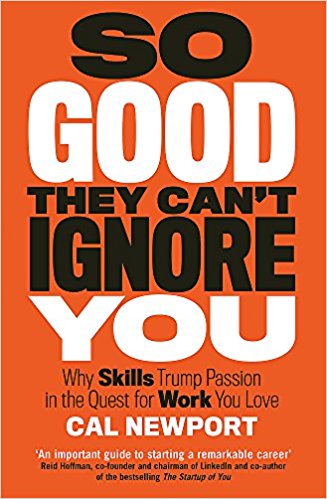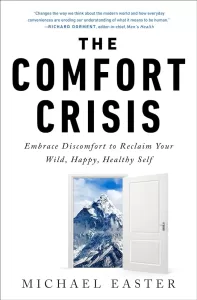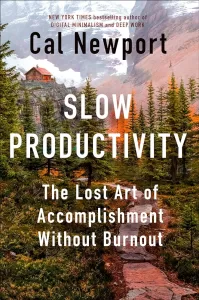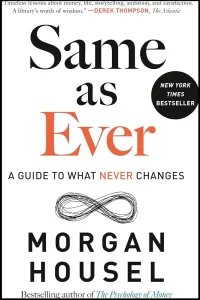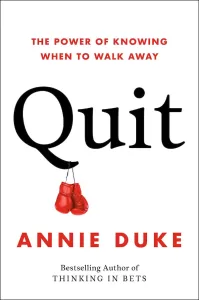Book Review: “So Good They Can’t Ignore You”
Book: So Good They Can't Ignore You by Cal Newport
Reviewer: Bobby Powers
My Thoughts: 9 of 10
This book's title comes from a Steve Martin quote. Martin said young performers often go to him for career advice, but they leave disappointed when he tells them there isn't a silver bullet to becoming a world-class performer. His advice? "Be so good they can't ignore you." Invest time into perfecting your craft, then the fans will follow. Newport builds on that concept in this book. Newport is a methodical, persuasive writer who shares his personal journey of answering the question, "Why do some people end up loving what they do, while so many others fail at this goal?” I learned a lot from this thought-provoking book.
What I Learned from This Book
Many people subscribe to the belief that each person has one true passion inside them and they must find a job that aligns with that passion. I myself subscribed to that mindset, but this book made me strongly question it. Newport convincingly argues for readers to adopt a "craftsman mindset," saying that people fall in love with jobs where they have developed deep expertise. Skill comes first, then passion. Our goal, then, is to become a "craftsman"--acquiring skills ("career capital") that we can leverage for more control in our lives and work.
Selected Quotes and Ideas from the Book
Don’t Follow Your Passion
- “The narratives in this book are bound by a common thread: the importance of ability. The things that make a great job great, I discovered, are rare and valuable. If you want them in your working life, you need something rare and valuable to offer in return. In other words, you need to be good at something before you can expect a good job.”
- “I didn’t get far in my quest before I realized...the conventional wisdom on career success--follow your passion--is seriously flawed. It not only fails to describe how most people actually end up with compelling careers, but for many people it can actually make things worse: leading to chronic job shifting and unrelenting angst when one’s reality inevitably falls short of the dream.”
- “In the movies there’s this idea that you should just go for your dream. But I don’t believe that. Things happen in stages...The key thing is to force yourself through the work, force the skills to come; that’s the hardest phase...I feel like your problem is that you’re trying to judge all things in the abstract before you do them. That’s your tragic mistake.” -Ira Glass
- “Compelling careers often have complex origins that reject the simple idea that all you have to do is follow your passion.”
Self-Determination Theory (SDT)
- “SDT tells us that motivation, in the workplace or elsewhere, requires that you fulfill three basic psychological needs--factors described as the ‘nutriments’ required to feel intrinsically motivated for your work:"
- Autonomy: the feeling that you have control over your day, and that your actions are important
- Competence: the feeling that you are good at what you do
- Relatedness: the feeling of connection to other people
The Craftsman Mindset
- The craftsman mindset: Putting the quality of what you produce above everything else
- “Irrespective of what type of work you do, the craftsman mindset is crucial for building a career you love.”
- “Whereas the craftsman mindset focuses on what you can offer the world, the passion mindset focuses instead on what the world can offer you."
- “There’s something liberating about the craftsman mindset: It asks you to leave behind self-centered concerns about whether your job is ‘just right,’ and instead put your head down and plug away at getting really damn good.”
- “Regardless of what you do for a living, approach your work like a true performer.”
- “The traits that define great work are rare and valuable. Supply and demand says that if you want these traits you need rare and valuable skills to offer in return. Think of these rare and valuable skills you can offer as your career capital.”
Deliberate Practice
- Deliberate Practice: “An activity designed, typically by a teacher, for the sole purpose of effectively improving specific aspects of an individual’s performance”
- “If you just show up and work hard, you’ll soon hit a performance plateau beyond which you fail to get any better.”
- “When I look back now, I’m humiliated that I ever showed (my earlier work) to anyone,” television writer Alex Berger recalled. “I hope I can look back ten years later and say the same about what I’m writing now.”
- “Doing things we know how to do well is enjoyable, and that’s exactly the opposite of what deliberate practice demands...Deliberate practice is above all an effort of focus and concentration. That is what makes it ‘deliberate,’ as distinct from the mindless playing of scales or hitting of tennis balls that most people engage in.”
- “If you’re not uncomfortable, then you’re probably stuck at an ‘acceptable level.’”
- “You stretch yourself, day after day, month after month, before finally looking up and realizing, ‘Hey, I’ve become pretty good, and people are starting to notice."
Mastering Your Craft
- “Hardness scares off the daydreamers and the timid, leaving more opportunity for those like us who are willing to take the time to carefully work out the best path forward and then confidently take action.”
- “Strain, I now accepted, was good. Instead of seeing this discomfort as a sensation to avoid, I began to understand it the same way that a body builder understands muscle burn: a sign that you’re doing something right.”
- “Advancing to the cutting edge in a field is an act of ‘small’ thinking, requiring you to focus on a narrow collection of subjects for a potentially long time. Once you get to the cutting edge, however, and discover a mission in the adjacent possible, you must go after it with zeal: a ‘big’ action.”
- The Adjacent Possible: “The next big ideas in any field are found right beyond the current cutting edge, in the adjacent space that contains the possible new combinations of existing ideas.”
- “Many people have lots of career capital, and can therefore identify a variety of different potential missions for their work, but few actually build their career around such missions.”
Think you’d like this book?
Other books you may enjoy:
Perennial Seller by Ryan Holiday
Peak by Anders Ericsson and Robert Pool
The 4-Hour Workweek by Tim Ferriss
Other notable books by the author:
Deep Work
How to Win at College
How to Be a High School Superstar
